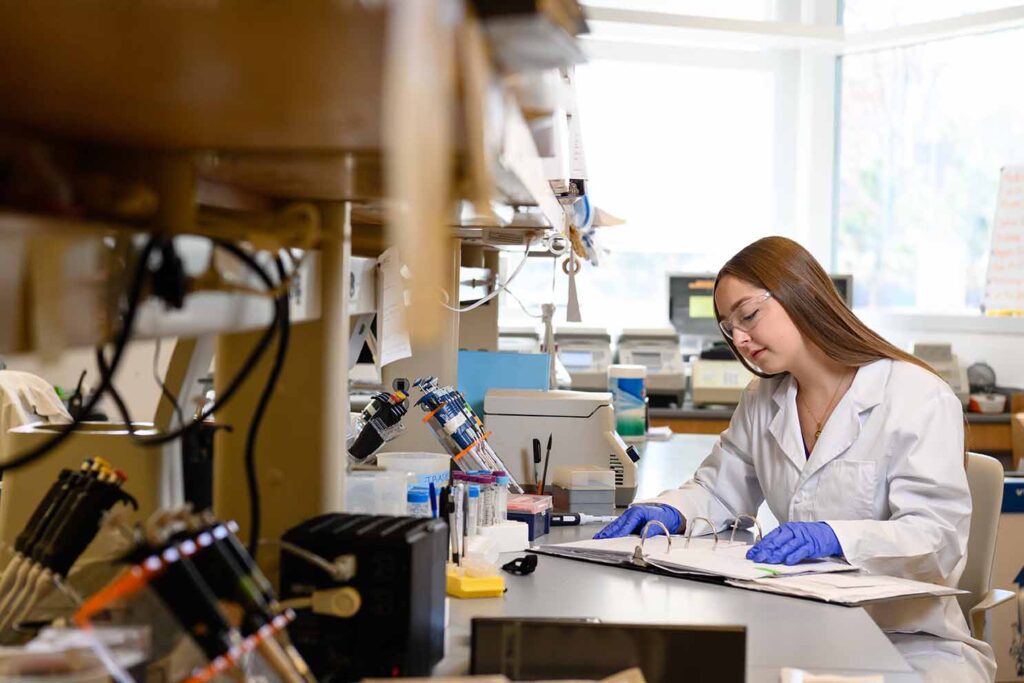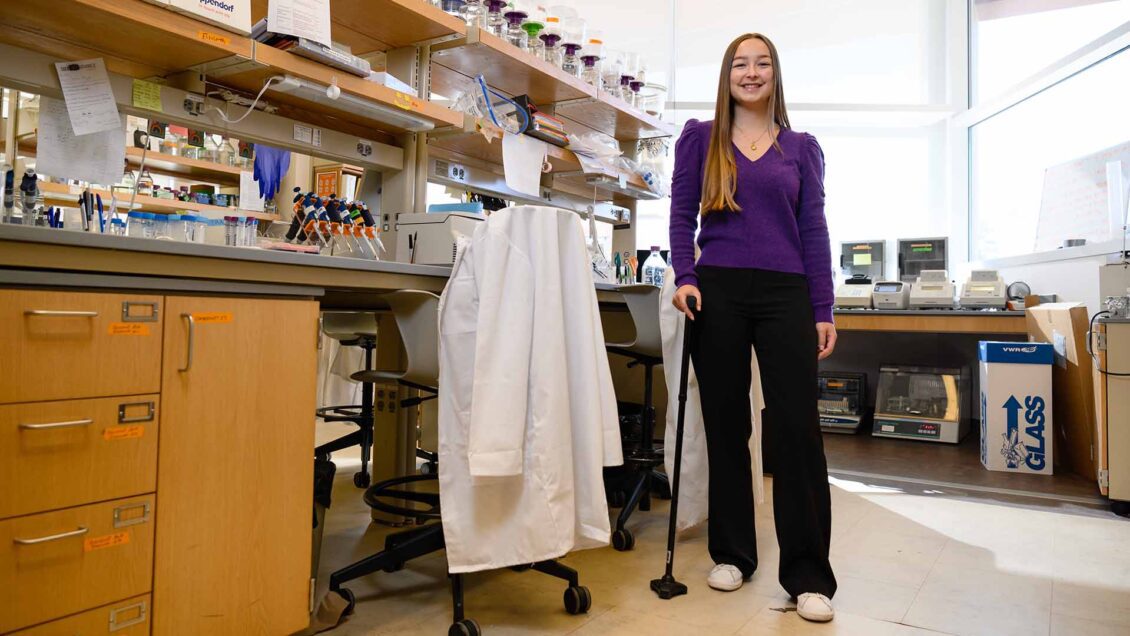Service, passion and research are what drive Elizabeth Caldwell, a National Scholar and junior genetics major, to be the leader she is in the Clemson community.
At 14 years old, Caldwell was diagnosed with Ehlers-Danlos syndrome, a group of disorders that affect connective tissues supporting the skin, bones, blood vessels and many other organs and tissues.
Although her condition is medically considered an incurable disease, Caldwell views her disability as a “big part of her identity” and a driving motivation for her area of study, field research, future aspirations of becoming a doctor and continued community service.
Her research with Michael Sehorn, an associate professor in the Department of Genetics and Biochemistry, concentrates on a rare immunodeficiency disease. Elizabeth started in the lab with Sehorn during her first year at Clemson.
Caldwell has focused her efforts on the role a DNA damage repair pathway plays in a relatively underresearched rare immunodeficiency disease in Sehorn’s lab.
Caldwell is also a part of Clemson’s Clinical Undergraduate Research Experiences in Surgery (CURES), a class also taught by Sehorn. Participating students complete 12-hour shifts in the trauma bay at Prisma Health Greenville Memorial Hospital and conduct clinical research.
Seeing emergency medicine and trauma has been very different from what you normally get to see. The class through Clemson has really made it easy to go in and see those cases and that type of patient. I knew that research was important for medical school, and it was being checked off by Clemson.
national scholar and genetics major elizabeth caldwell
Sehorn lauded Caldwell’s inspiring “natural curiosity” and unequivocal dedication that she brings to her work.
“She has shown resilience as she works through and overcomes challenges on her path to achieving success,” said Sehorn. “She is a wonderful student, and the lab would not be the same without her.”
Last summer, Caldwell was an intern with St. Jude’s pediatric oncology education program, a competitive opportunity she believes her time at Clemson helped her secure.
“Clemson has been able to make me competitive for those types of internships with a high caliber that are very well established and known,” said Caldwell.
During her time at St. Jude, Caldwell researched a rare, cancerous fusion protein related to leukemia and was able to find a drug that showed “promise for treating the disease.” She also worked on research with the largest cohort of leukemia patients and is part of a research paper that is currently pending professional review.
Beyond her classroom and lab endeavors, Caldwell partakes in multiple disability advocacy initiatives.
Caldwell and her National Scholars Program (NSP) cohort founded the Tigers 4 Accessibility club. The club aims to create a more inclusive and accessible environment, both on campus and within the Clemson area, while also promoting disability inclusion.
The NSP is designed to provide a select number of Honors students with unique intellectual, professional and personal development experiences as well as a full cost of attendance scholarship and enhanced program opportunities. Caldwell attributed the quick and steady success of the club to her role in Clemson’s NSP.
“The NSP is able to give us the resources and the community to be able to make something like that happen very quickly; it gave me the ability and resources to make change possible,” said Caldwell.
In addition to her advocacy efforts with Tigers 4 Accessibility, Caldwell also volunteers at the Clemson Free Clinic, a local medical center that provides health care to the area’s low-income population. While at the clinic, Caldwell volunteers with multiple physicians and assists during patient visits, an experience she has found truly “eye-opening.”

Reflecting on her time at Clemson, Cadwell noted she “wouldn’t have these opportunities to take advantage of anywhere else.”
“Clemson and the people here will always be supportive of me, even if they’re strangers. They truly are a familial support system in the sense that no matter what you’re going through, somebody will be there for you,” added Caldwell. “That has affirmed that I did make the correct decision, and I will always be able to come back to Clemson and feel at home.”
Through the mentorship of Sehorn and her advocacy endeavors, Caldwell has ambitious aspirations for her career after Clemson.
“I know what I want to do with the rest of my life: facilitate rare disease research, see those patients and actually be able to make tangible change. My lab research and knowledge of the healthcare system will hopefully allow me to advocate for those patients.
“I want to help the person that I was when I was diagnosed with my disability,” Caldwell added. “I want to give them that diagnosis that they’ve been looking for, but I also want to do the research that will allow me to say, ‘You have this disease, but this is why you have it and here’s what we’re going to do about it.’ I’m forever grateful that I chose Clemson Honors because I probably wouldn’t be on the same path that I am if I went to another institution that didn’t give me that opportunity.”
Get in touch and we will connect you with the author or another expert.
Or email us at news@clemson.edu

